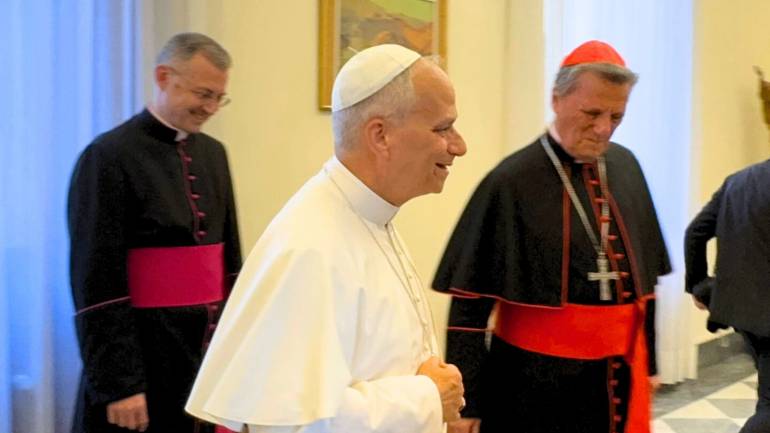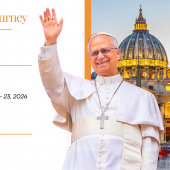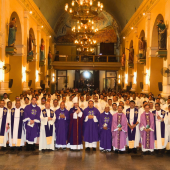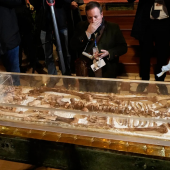Synod Council Approves “Pathways” Document for Implementation Phase

The XVI Ordinary Council of the General Secretariat of the Synod concluded its first in-person meeting at the Vatican on June 27, 2025, giving formal approval to the Pathways for the Implementation Phase of the Synod, a key document designed to guide local Churches worldwide in the implementation of synodality.
Over two days, council members and consultors joining both in person and online, gathered to discern the next steps for the Church’s ongoing synodal journey, a process that continues to inspire listening, collaboration, and participation across the global Catholic community.
Church leaders emphasized that this next phase belongs especially to local Churches, which are now called to translate synodal discernment into concrete action within their pastoral realities. The focus: ensuring that synodality becomes a lived and visible dimension of Church life at every level.
In his opening address, Cardinal Mario Grech, Secretary General of the Synod, encouraged participants to remain deeply rooted in the Church’s missionary call, reminding them that synodality is ultimately a pathway to more effective Gospel witness.
One of the most anticipated moments of the gathering took place on the afternoon of June 26, when the Council held a special session with Pope Leo XIV marking the Pope’s first engagement with the Synod Council since his election earlier this year. The Holy Father listened attentively to updates from across continents and shared his own reflections on the future direction of the synodal journey.
The newly approved Pathways document, structured in four chapters, provides diocesan bishops and synodal teams with both an interpretive framework and practical criteria for implementing synodal priorities. It reinforces the essential link between synodality and mission, underscoring that all pastoral renewal must serve the proclamation of the Gospel and outreach to today’s world.
The General Secretariat clarified that the document directly addresses questions and concerns raised by local Churches in recent months, reflecting the “circular dialogue” that has defined the synodal process from the beginning.
The Pathways document will be available for public download starting July 7, 2025, on the Synod’s official website: www.synod.va.
Beyond the approval of Pathways, council members were also updated on other key developments:
-
The Jubilee of Synodal Teams and Participatory Bodies continues to attract strong global interest, with registrations now received from all five continents. To accommodate late registrants, the deadline has been extended to July 31, 2025. The event program, currently in preparation, will include formation workshops and opportunities for exchange among various synodal groups.
-
Reports from local Churches showed growing momentum at the diocesan level. Across different regions, new“schools of synodality” are being established, providing much-needed formation for lay leaders, pastoral workers, and other Church collaborators in the areas of listening, communal discernment, and co-responsibility.
Council members also reviewed progress reports from the Study Groups established by Pope Francis following the First Session of the General Assembly. While their final reports were originally due by June 2025, the timeline has now been extended to December 31, 2025, following the death of Pope Francis and the election of Pope Leo XIV.
To ensure continued transparency, all Study Groups have been asked to submit interim reports by the end of June, whichwill be made publicly available on the Synod website.
The meeting concluded with a renewed spirit of shared mission and commitment, as the global Church continues its synodal journey toward deeper communion, participation, and mission.
The next meeting of the Ordinary Council is scheduled for October 26–28, 2025.
Radio Veritas Asia (RVA), a media platform of the Catholic Church, aims to share Christ. RVA started in 1969 as a continental Catholic radio station to serve Asian countries in their respective local language, thus earning the tag “the Voice of Asian Christianity.” Responding to the emerging context, RVA embraced media platforms to connect with the global Asian audience via its 21 language websites and various social media platforms.













